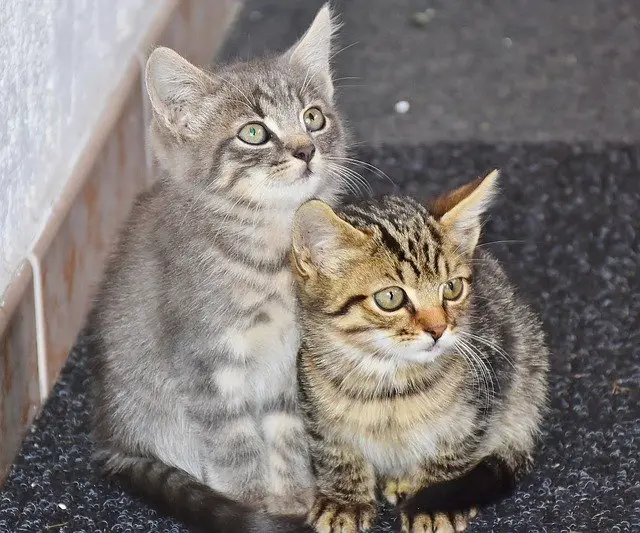We all want our adorable four-legged friends to be in good health. But be careful if your cat exhibits “strange behaviours”, they could be symptoms of some of the more common diseases in cats.

How not to adore our dear kittens ? These cuddly balls that love to play and jump. Beings of marked curiosity and impressive agility.
But, even though our beloved felines have superhero-worthy skills (acrobatic jumps, Wolverine-worthy scratches), they were revered in ancient Egypt because they were considered sacred (a belief they have held over the years) and are endowed with 7 lives, know that they too can be affected by common pathologies.
So let’s find out together which diseases our cats can be affected by and above all we learn to recognize the symptoms of each of them. Remembering one thing in particular: these ailments, however common, must never be underestimated.
The most common diseases for a cat and their symptoms
now let’s see all the common pathologies of our four-legged friends, the symptoms we need to pay attention to and why.
Vomiting and diarrhea
As with humans, kittens can also suffer from stomach pain. But as much as it may seem a common and above all not serious malaise, it should not be underestimated at all, especially if accompanied by vomiting or diarrhea. This usual symptom could hide more serious pathologies. One of the most common consequences is that cats tend to become dehydrated quickly. This occurs mostly in kittens, due to their smaller size.
There are a number of reasons why a kitten may suffer from vomiting or diarrhea. It could be a reaction to a drug or our pet could have ingested a foreign body. The reasons why our kitten’s stomach could be inflamed are to be found in: intestinal parasites, ingestion of foreign bodies, inflammatory bowel disease (IBD), feline immunodeficiency virus (FIV), toxins or drug reactions.
Accidental ingestion of a foreign body
The curiosity of kittens is known as their tendency to play with objects to chase and grab them. But if on the one hand these attitudes must be encouraged, on the other, attention must be paid. Unfortunately, it often happens that, while playing, the kitten can ingest a foreign body. Furthermore, we must be aware that we may not immediately notice this.
The likelihood of kittens ingesting items they love to play with such as hair ties, rubber bands, or sewing needles is not that low.
To recognize an accidental injury of a foreign body, look out for symptoms such as: decreased appetite and vomiting (as mentioned above).
If you doubt that your kitten has ingested anything, do not hesitate to contact your trusted veterinarian.
And always keep in mind that even these episodes are not rare at all.
Fracture of the bone
The ability of cats to jump from side to side of furniture, however much it shows off our felines agility, can cause accidents.
In fact, it can happen that the kitten breaks a bone and these episodes are more frequent than you might think.
To recognize this problem, pay attention to some factors.
The most common symptom associated with a fractured limb bone is lameness. Also keep in mind that the affected area may swell and that the pet will tend to protect the area, as it will cause pain or discomfort.
So be careful when examining the affected area, as the risk of being bitten or scratched is quite high.
Urinary tract infection
The cats are particularly attentive to their surroundings, including the place to urinate. In the event that your kitten has a urinary tract infection, special care must be taken as we may not notice it. In fact, cats tend to often hide the symptoms of pathologies.
But how do we know then? In this case we can pay attention to the unusual attitudes of our kitten.
The kittens with urinary tract infections tend to urinate more frequently or to urinate outside the litter box. Also we must be careful and check if there are traces of blood in the urine or notice the kitten shows difficulty in urinating. Of course, this problem shouldn’t be taken lightly either.
Obstruction of the urinary tract
Urinary tract obstruction is a disease that, although common in cats, is quite dangerous and requires prompt intervention in order not to compromise the health of the kidneys. To recognize it, keep in mind that the signs of a urinary obstruction include all the symptoms of a urinary tract infection (listed above). Furthermore, if we notice that the cat makes vocalizations, it shows signs of agitation, difficulty in urinating, intervene in a timely manner. If your kitten suffers from a urinary tract obstruction contact your vet who will know how to relieve your cat ‘s pain.cat and find out the cause of the problem.
Common cat diseases: a pitfall not to be underestimated

As we have said, the biggest pitfall of these common diseases in cats is that they can occur suddenly and require specific treatments. And worst of all, cats could hide the symptoms associated with these diseases. Also remember that these are just some of the most common pathologies in a cat.
So always pay close attention to the behaviour of your four-legged friend and, if you notice unusual attitudes, act promptly and do not hesitate to take him to the vet.






